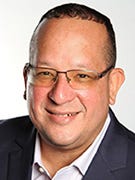Channel Futures MSP 501: Top Managed Service Providers 2024, 501-451Channel Futures MSP 501: Top Managed Service Providers 2024, 501-451
The big reveal of the world's top managed service providers for 2024 is here, beginning with those ranked 501-451. Plus, we break down the business trends that are making these leading IT service providers successful.

Already have an account?
The 2024 edition of the Channel Futures MSP 501, the most comprehensive survey and ranking of top managed service providers worldwide, has arrived. We once again recognize the best IT service providers that are helping customers increase the value of their businesses through technology.
Using our unique methodology (see at bottom of this article), we narrowed down the list of applications to the very best managed service providers in the United States, Canada, the U.K., the European continent, Australia, Asia and all parts of the globe. These are companies that made monumental moves in the last year, dominating the IT services sector by offering innovative solutions that drive their success and the success of their clients.
Our countdown starts with Nos. 501-451 in the slideshow above.
Editor's Note: If you are having trouble advancing past slide No. 5 above, turn off your ad blocker.
Want to see the complete rankings in one document? We've compiled it for you.
You can also register for our on-demand MSP 501 webinar, where we deliver industry insights from a panel of 2024 Channel Futures MSP 501 honorees.
Introducing the Top Managed Service Providers of 2024
Our research around the 2024 Channel Futures MSP 501 list shows healthy overall revenue, recurring revenue and profit growth in 2024. At the same time, managed service providers on the list say they detect signs of slowness that provide both challenges and opportunities over the coming year.
In judging candidates for the MSP 501, we use a proprietary algorithm that weighs revenue streams according to how well they represent modern business models and forward-thinking managed services strategies.
The numbers from our 2024 MSP 501 provide a snapshot of the managed service provider industry:
MSP 501 aggregate revenue: $24.9 billion
Average revenue Per MSP 501: $49.6 million; median: $6.8 million
Average total recurring revenue from managed services: $23 million; median: $4.5 million.
Recurring revenue grew 19% for the average MSP 501er.
Total employment of MSP 501: 90,377; median of 33 employees per company.
Three hundred sixty-six of this year's MSP 501ers are repeat winners from 2023, which means 135 newcomers made the 2024 list.
To put these numbers in context, the 2023 MSP 501 aggregate revenue was $13.38 billion, average recurring revenue $23 million, and average recurring revenue grew 33%. The slowdown in recurring revenue growth reflects the maturity of the model compared to last year.

Thapana_Studio/Shutterstock
Security was the most commonly sold managed service, as 99% of the MSP 501 reported revenue from that service, reflecting the importance of cybersecurity. The other most popular services were help desk/service desk (93%), managed email/anti-spam (91%), cloud storage (89%) and remote monitoring and management (88%).
Three-quarters of the MSP 501 listed help desk/service desk among their top three revenue-producing services. Managed security (69%) and remote monitoring (56%) were the other services listed by most of the MSP 501. There was a big dropoff after that, with SaaS email at (33%) and business continuity (30%).
2024 MSP 501: Creativity, Laser Focus on Industry Are Key
As anyone who follows the IT industry knows, 2023 was not all smooth sailing. Even top MSPs that experienced strong growth noticed that. To overcome headwinds in 2024, creativity might prove as important as technology to their businesses.
“Looking back, 2023 was an outstanding year,” Ensono president Marc Capri said. “But there were a lot of macro-economic conditions that started to reveal themselves as the year went on. And those started to drive conversations that really followed through to the beginning of 2024. Interest-rate changes are putting pressure on businesses and the idea of investing in modernization. We need to get creative on investing in modernization and future technology.”

Ensono's Marc Capri
Along with rising interest rates, macro conditions include inflation, uncertainty with the U.S. economy in a presidential election year, and the rising tide of artificial intelligence (AI) that dominates talk in board rooms — even if the technology isn't quite ready for prime time.
“Economics rules,” Recovery Point CEO Jack Dziak said. “In our world, as a capital-intensive service provider, interest rates have an impact. They have an impact on customer decisions; they have an impact on our decisions. It's driving an increased level of scrutiny and a continuous linking of pricing to value. This isn't 10 years ago.”
Marciel Velez, CEO of Xperteks, said key indicators he looks at indicate a spending slowdown.
“Things like people slow-paying and projects are not being approved in a timely manner,” he said. “When you see those things across different verticals, you can sense that things are starting to slow up a bit. I see it as an opportunity with existing clients and with prospects to show the value of managed services. If you're an MSP and you're seeing your clients slow down a little bit, that's an indicator to ramp up your marketing to get out there now, because everybody else is looking to save dollars.”

Xperteks' Marcial Velez
“We’re seeing cautious spending out there,” said Sam Ruggeri, VP of business development at LincolnIT. “People are revamping. We’ve seen some reorganizing, companies are letting people go, and some have asked us to take those people on. There’s always that overhead versus budget conversation. So it’s just a matter of getting creative with the client.”
New Charter CEO Peter Melby said MSPs must focus on modernizing IT to maintain growth.
“We’re seeing the same softness that other MSPs are seeing in the industry,” he said. “There’s price pressure as everything gets more expensive. Ultimately, there are legacy services that are going to diminish. Computers break less often. If you’re not doing things that move the business forward, then there is softness. IT is the modernization business. It always has been. We have to modernize technology, people and processes.”
To that point, MSPs can shepherd customers through the Broadcom-VMware transition, keep them safe from cyber threats, help optimize cloud costs and find a way to monetize artificial intelligence (AI).
MSPs Can Help Focus the Use of AI
Today, nothing drives modernization talk like AI. While it wasn't on the list of top revenue producers for MSPs in 2023, it ranked fifth in their forecasted growth areas for 2024. Nearly one-quarter (23%) mentioned AI as a growth area, ranking behind managed security (76%) and help desk/security desk (53%) – the leading revenue-producing 2023 services – as well as remote monitoring and management (RMM) at 38% and managed compliance services (28%).
Customers’ desire to rush to AI can often complicate an MSP’s job.

Ok-product studio/Shutterstock
“AI is a hot topic, much like cloud was a hot topic 10 years ago,” Ensono’s Capri said. “Everyone's thinking, ‘OK, my board of directors is talking about it; I’d better have a story.’ Well, there are stories, but are they practical to implement in the near term to help solve some of the economic issues?
Cybersecurity (“Recovery is cool again,” according to Recovery Point’s Dziak), Broadcom-VMware (“This acquisition has been the most disruptive event that we've seen in many, many years,” Expedient SVP Allen Skipper said), cloud cost optimization and continuing mergers/acquisitions also are high priorities for leading MSPs. We will explore those topics in depth in the coming days as we roll out our 2024 MSP 501 list.
What Criteria Define a Top MSP? The 2024 MSP 501 Methodology Explained
The Channel Futures MSP 501 methodology aims to identify the best-performing managed services providers based on a wide range of criteria. Applicants must pass a first-round review which includes surpassing a threshold for minimum annual revenue and managed services revenue. Then there's a deeper review of these top managed IT service providers' financials that examines weighted annual revenue, EBITDA as a percentage of total revenue, and recurring revenue as a percentage of total revenue. We designed those three criteria to identify true high-performance managed services providers. Large, diversified companies submit the operating data from their managed services division or business to ensure a level playing field against pure-play MSPs.
In judging MSP 501 candidates, we use a proprietary algorithm that weighs different revenue streams according to their importance to modern business models and forward-thinking managed services strategies. Overall revenue accounts for 50% of each MSP's score, but that 50% is broken down and weighted to favor value-added services versus resale.
Next, the Channel Futures MSP 501 methodology is reviewed, amended and updated by a blue-chip group of thought leaders. These experts include MSP owners, analysts − including those from Informa-owned Canalys and Omdia − practitioners and consultants who study MSP business models.
The revamped 2024 MSP 501 methodology considers the ways MSP business practices have transitioned to subscription-based services. We increased the weight of recurring revenue from 10% in 2023 to 25% in 2024 to better reward MSPs who have adopted more subscription-based services. We requested a profitability metric and considered how it can be impacted by high levels of reinvestment into the business to fuel growth, so companies are not penalized for investing heavily.
We keep each MSP’s revenue, profitability and other financial data confidential, but use this data in aggregate totals that we may publish.
Over time, the MSP 501 methodology has evolved to match the characteristics of the market as business models change. It is the only methodology of its kind providing a sound benchmark for managed service providers to gauge their business performance. It now also aligns with the major benchmarks provided by such organizations as MSP Toolkit and Service Leadership, a ConnectWise company.
The following contributed to this year’s MSP 501 methodology: Len DiCostanzo, MSP ToolKit; Sam Ruggeri, LincolnIT; Peter Kujawa, Service Leadership, a ConnectWise company; Mitch Morgan, New Charter Tech; Neil Medwed, Meriplex; Tony Ferrigno, ATSG; and Jason Rincker, Stronghold Data.
See the rest of our 2024 MSP 501 slideshows as we unveil them all week:
About the Author
You May Also Like


